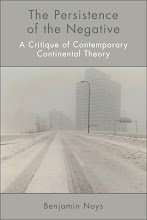‘Max Stirner’s Ethics of Voluntary Inservitude’
Dr Saul Newman, Reader in Political Theory, Goldsmiths
6.30 pm, Tuesday 24th of October, Room M57, Grand Parade, Centre for Research and Development, Faculty of Arts, University of Brighton
This paper shows how nineteenth century radical Young Hegelian, Max Stirner’s critical post-humanist philosophy allows him to engage with a specific problem in politics, that of voluntary servitude – in other words, the wilful acquiescence of people to the power that dominates them. I argue that Stirner’s demolition of the abstract idealism of humanism, rational truth and morality, and his alternative project of grounding reality in the singularity of the individual ego, may be understood as a way of countering and avoiding this condition of self-domination. In contrast to various claims that Stirner’s thought is nihilistic and inimical to any ethical position, one finds in Stirner a series of ethical strategies through which the self’s relation to power is interrogated and in which the possibility of alternative modes of subjectivity is opened up. Here the subject can invent for him- or herself- new forms of existence and practices of freedom that release him from this condition of subjection. There emerges from Stirner’s thought a form of micro-politics and ethics, which has important implications for any consideration of radical political action today.
Saul Newman is the author of From Bakunin to Lacan: Anti-authoritarianism and the Dislocation of Power (2001), Power and Politics in Poststructuralist Thought,(2005), New Theories of the Political (2006), Unstable Universalities: Postmodernity and Radical Politics (2009), and The Politics of Postanarchism, (2010). His work on anarchism and post-anarchism has set the terms of debate about anarchist politics and theory today.
Dangerous Ideas challenges engaged intellectuals to critically assess the extraordinary changes of the past decade. It is an opportunity to explore what engaged critique means for a newly politicised student community, and for a society experiencing seismic shifts after the financial and military crises of the past decade.
(Organised by CAPPE and the Critical Studies Research Group, Faculty of Arts, University of Brighton)


No comments:
Post a Comment